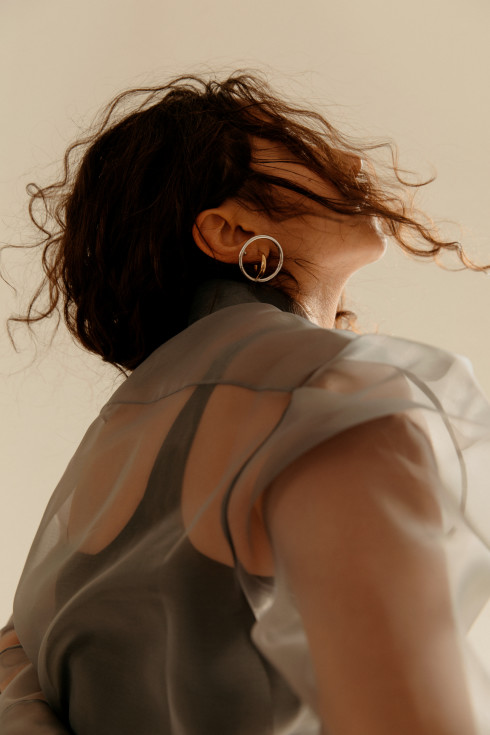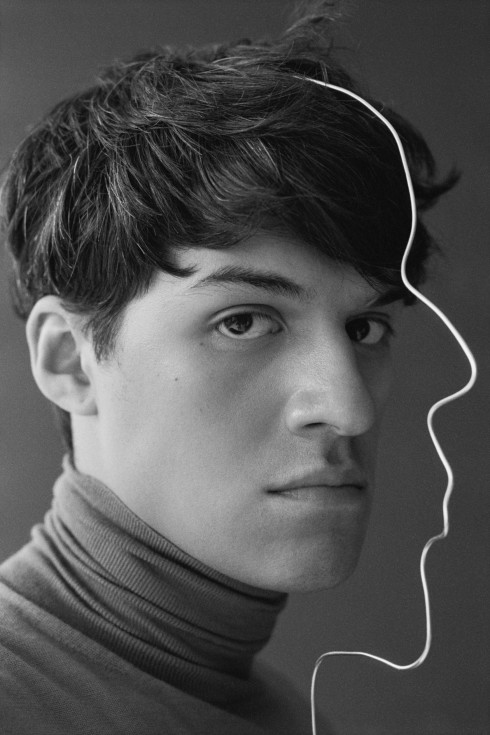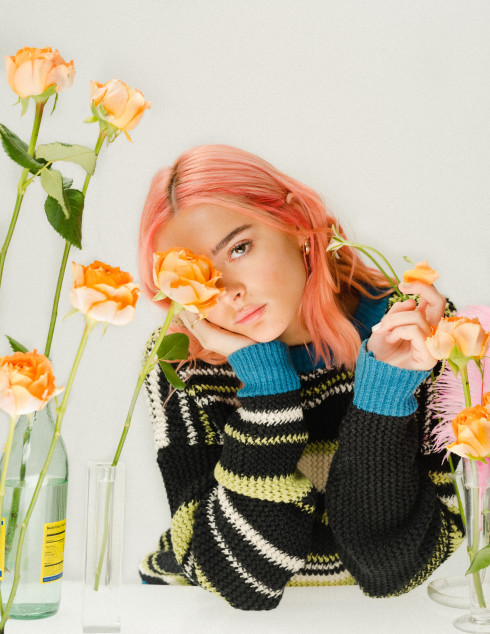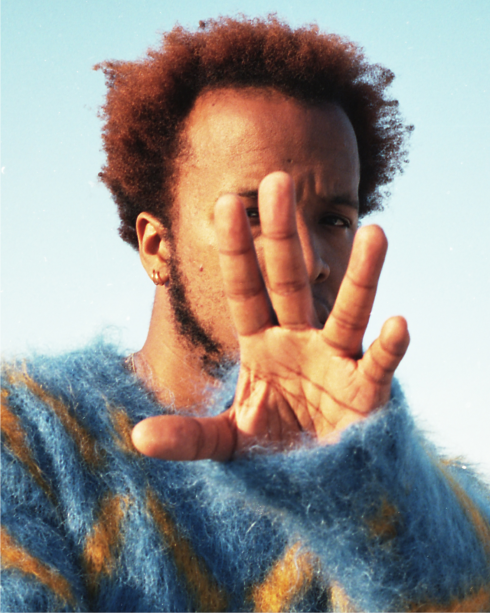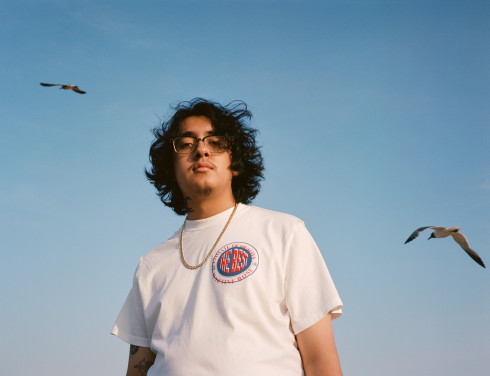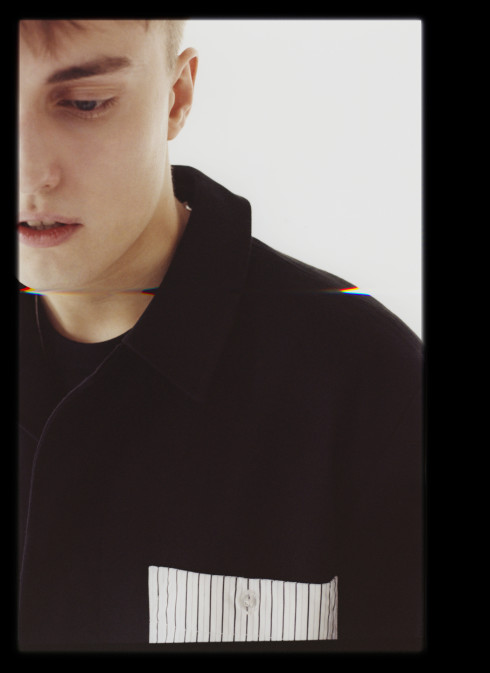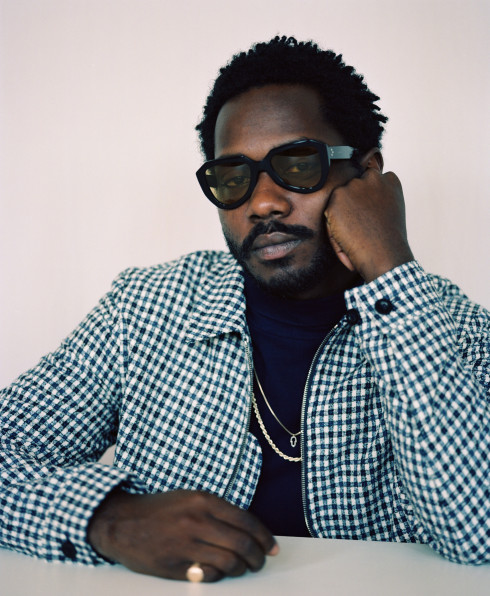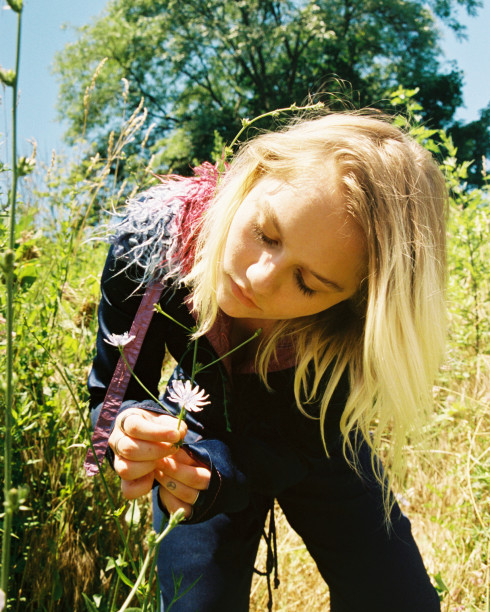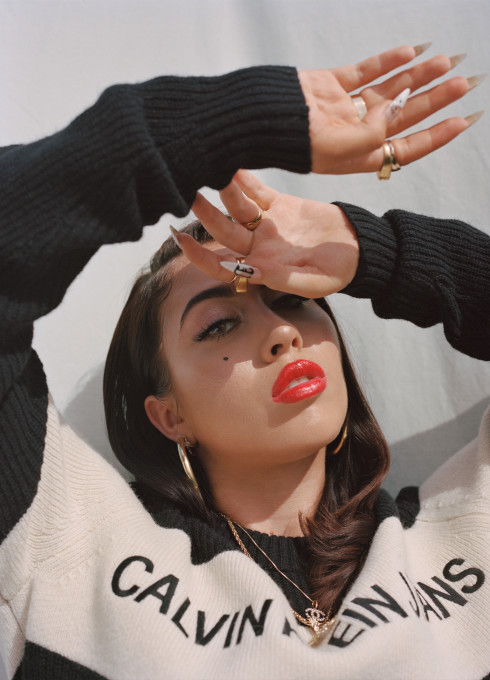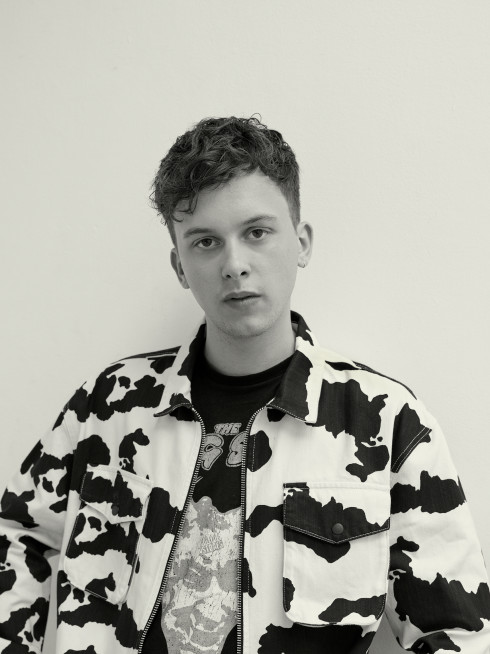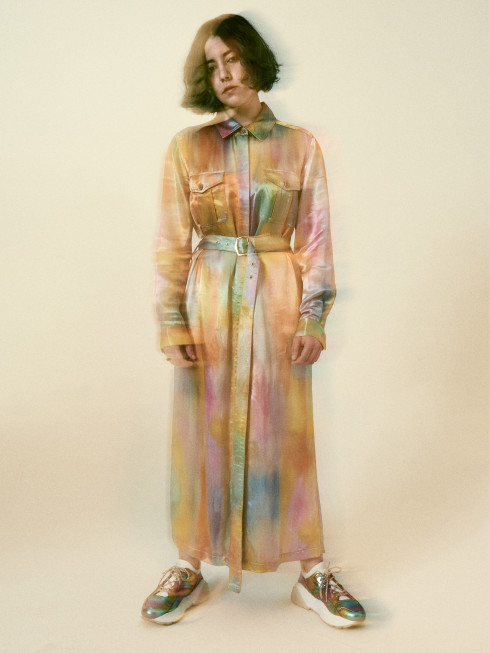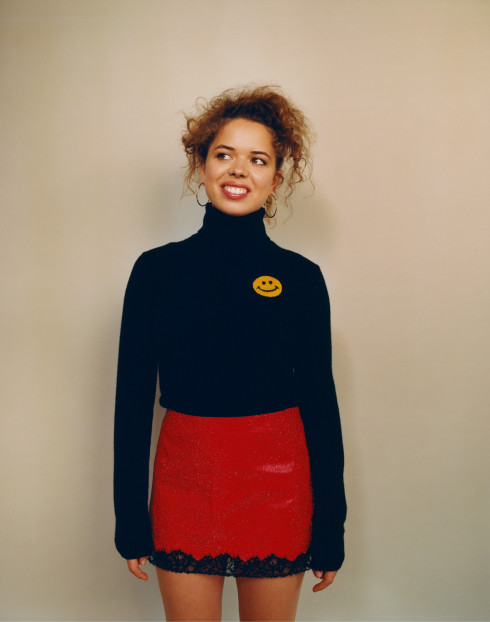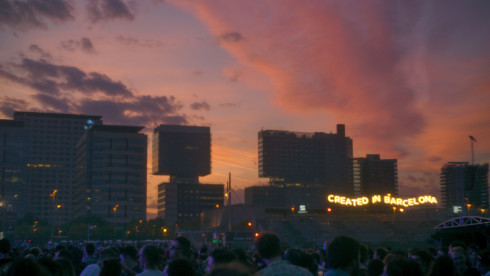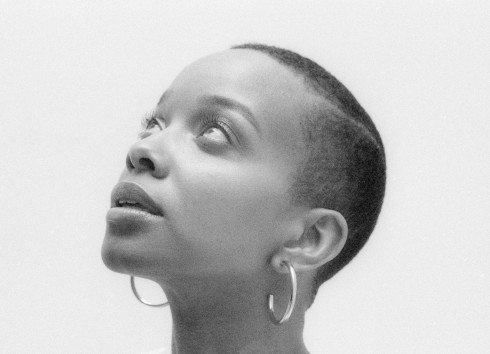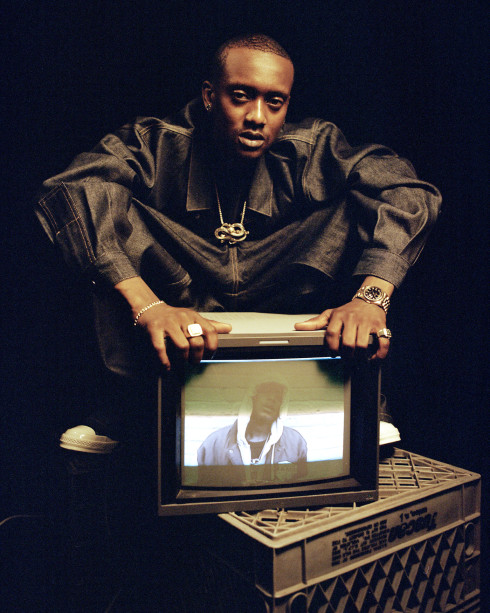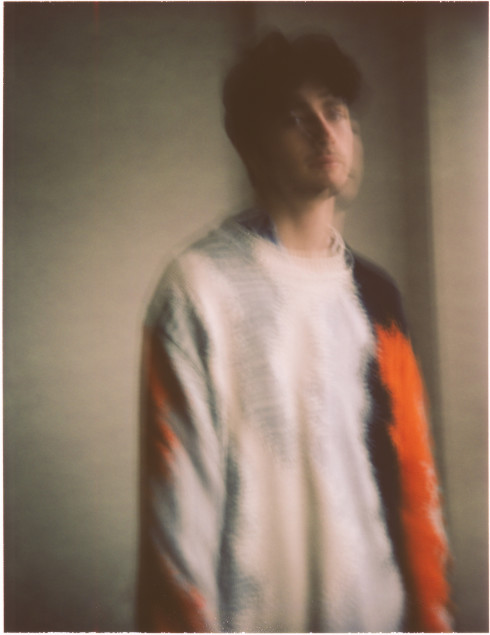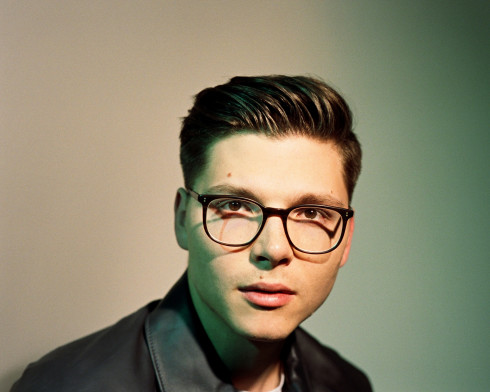
TROYE SIVAN
Le Poisson Rouge on Bleecker Street in New York’s Greenwich Village is an underground (literally) performance venue that is known for its eclectic lineup, with indie acts and Nineties-themed dance parties alternating with Bingo nights and chamber ensembles. Its stage has hosted everyone from Jamie xx to the Pulitzer-winning composer Caroline Shaw, but one musician early last month brought something new: a line that snaked around the block hours before the doors opened, as diehard fans vied to stake out spots near the stage for the first New York show of their beloved Troye Sivan, a young “dark pop” singer wise and world-weary beyond his twenty years.
Born in South Africa and raised in Australia, Sivan, who still has the fresh face and eager earnestness of a high school freshman, has been performing since he was a toddler, first during ceremonies at synagogues and then on local television in Perth before releasing an EP at the age of twelve. “I first discovered music when I was really, really young, and always gravitated towards it,” he recalls. “I was always wanting to perform and it’s always been a part of my life. We used to have a Michael Jackson concert on tape, and I would just watch it all the time as a little kid and I knew that that was what I wanted to do.”
Sivan pursued a parallel career in acting during his teenage years, playing a young Hugh Jackman in X-Men Origins: Wolverine and the lead role in the 2010 South African film Spud, which earned him a nomination for a South African Film and Television Award, and its two sequels. He also performed in a production of Waiting for Godot with Ian McKellen, but says he was always drawn back to his passion for music, which he nurtured by uploading homemade performance videos to YouTube, where he began drawing a sizable following. “I took a little bit of a break when I was fifteen to make music personal again,” he says, “not about these events that I was singing at but rather about the kind of music I really like. I think always around that age people start to finally develop their own musical taste and I created my own music library for the first time around that age and I just discovered things.”
His explorations took him from Amy Winehouse through Nina Simone and Ella Fitzgerald to Frank Ocean and Kanye West and, eventually, Robyn, who as queen of the Swedish pop scene helped lead Sivan to his current sound, which mixes of-the-moment electronic production with wistful, clear-eyed lyrics. There were also some surprising phases along the way: “I was obsessed with Michael Bublé when I was fifteen,” he laughs, “and I was like, ‘Cool, I want to be like Michael Bublé.’” He began writing his own songs and, at eighteen, signed with EMI Australia on the strength of an original recording he posted to YouTube.
If, like Justin Bieber before him, Sivan has YouTube to thank for his record contract, he also owes the platform his rabid fan base, with 3.7 million subscribers and counting. After years of posting only videos of himself singing, he began video blogging in 2012, and quickly became known for his goofy candor and light-heartedness, ending each video with a signature wink. “I wanted to connect with people on a more personal level, so the first time I posted a video where I didn’t sing and I just spoke, it was really nice,” he says of his shift. “Even though I’d been making videos for a couple of years at that point, it felt like I was introducing myself for the first time, and as soon as I did that and I saw that people appreciated it and were connecting with it, I started doing it more often.”
In August 2013, Sivan posted what has become one of his most popular videos, in which he came out as gay, well over a year after coming out to family and friends. He says that, besides erasing the frustration of “feeling like I’m lying all the time and hiding something that I’m not ashamed of,” his very public act—now viewed over six million times—was an attempt to pay it forward. “When I was in my time of need and figuring out who I was, I turned to the internet when I didn’t have anyone else,” he recalls, “and it just so happened that I had this huge YouTube audience so I could hopefully be that for someone else, so it just felt like the right thing to do.”
When the video went up, Sivan was in the midst of negotiations for his record deal, and he admits to a little concern over what the label’s reaction would be, given the fact that, despite the progress in recent years, being openly gay as an entertainer is still not exactly the norm. “But they emailed the next morning with congratulations,” he recalls, “and everyone was fine about it and it’s something that I’m really, really proud of because I feel like it really means something to my audience.”
That audience has been waiting—patiently and perhaps less so, given that many of them are teenage girls—for his début album, Blue Neighbourhood, which he’ll release on Friday, sixteen months after the launch of his first single, “Happy Little Pill,” which, in Lorde-like fashion, catchily and broodingly skewers pop music’s obsession with material things and, more devastatingly, happiness itself. The new album offers a sustained and coherent window on Sivan’s æsthetic, upbeat and energetic, but always cognizant of the possibility of heartbreak and loss. The lead single “Wild” recounts the passion of overwhelming love over an Eighties-style guitar lick. “Fools” tells of a heedless rush into a doomed relationship. The album’s most powerful track, “Talk Me Down,” layers pounding percussion beneath a tale of the struggle to say goodbye. “Cause you know that I can’t trust myself with my three AM shadow,” he sings. “I’d rather fuel a fantasy than deal with this alone.”
As with Blue Neighbourhood, Sivan cowrote all of the songs on 2014’s TRXYE, the EP “Happy Little Pill” appeared on, and he admits now that he “maybe leant a little too hard on production to kind of save the day when the songwriting wasn’t one hundred percent.” Still, that earlier EP served to establish the template for the more evolved sound Sivan creates today, with lush, shimmering production that leavens the serious tone of many of his lyrics. “I’m sort of limited by the fact that I can’t play piano properly. I know basic chords and stuff, but it really held me back as far as production,” he says about the evolution of his writing process. “I felt really frustrated that I had so many of these ideas and I knew all of these stories that I wanted to tell, but I felt like I didn’t necessarily have the skill to make a real track. Then the one time that I did do it, I wrote a song based off of the John Green book The Fault in Our Stars. I just kind of guessed my way through it and produced this track in my bedroom using a mini keyboard and I uploaded it to YouTube and that’s actually what ended up getting me signed.”
With Blue Neighbourhood, Sivan has come a long way from tapping out sounds in his bedroom, having worked with producers who “could make the sounds that I had in my head come to life without spending days trying to figure it out from a YouTube tutorial,” he laughs. But the words are still his own. “I would say they’re almost one-hundred-percent autobiographical. There’s actually not a lot, if anything, that I hold back when I’m songwriting,” he says. “Sometimes I write about the deepest, darkest thoughts in the back of my mind, but sometimes I don’t even voice in the writing room what it’s about. I’ll just write it because I feel like I’m talking to myself and I’ll listen to that lyric and be like, ‘Oof, that’s a hard thing to think about.’ It’s a very, very, very personal and intimate thing for me, and it makes the songs mean something to me, and hopefully they’ll connect with other people because people can feel that it’s honest and really genuine.”
And that personal connection is, again, one that Sivan, in a reflection of pop music’s new wave of internet-native talents, has cultivated through social media—3.1 million followers on Twitter, 2.9 million on Instagram—providing him a built-in audience already biased in his favor. “I don’t remember what it’s like not to have the internet, so it’s always been natural for me, and the result of it I think is a much looser relationship with my fans. I’ve been making YouTube videos now for eight years and I’m only twenty so it’s almost half my life I’ve been doing this,” he says. “I think ultimately it helped me so much on the music side of things. I’m really lucky because I have this audience that cares about me as an artist and a person as much as they care about if my single is on the radio or whatever. It’s about much more than that, and I think it’s in character for people to listen to entire EPs of mine rather than just one particular song. I feel like the relationship is much deeper and much more connected. They understand where I’m coming from a little bit more.”
Blue Neighbourhood is out Friday.

